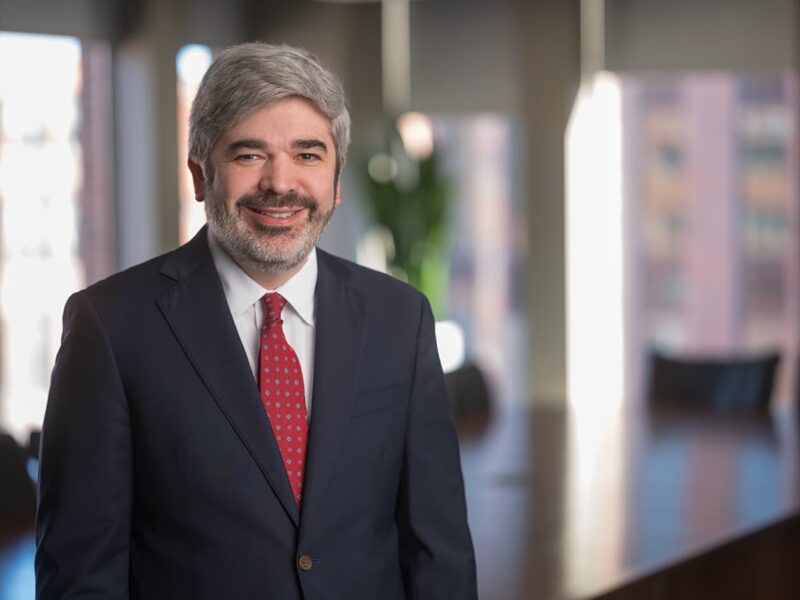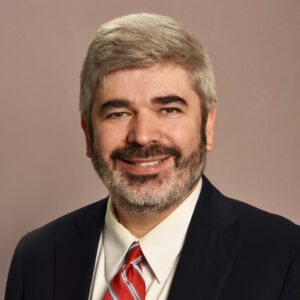

David Goldman scored another appellate victory in Vargas v. Riverbend Management. In its decision, the Law Court affirmed the defense verdict secured by Devin Deane in the Superior Court.

In Vargas, the Law Court took the opportunity to clarify the circumstances under which an employer can be held vicariously liable for the discriminatory actions of its employees.
In Vargas, the plaintiffs were customers who had a negative interaction with a McDonald’s drive-thru employee when that employee served them the iced coffee that they had ordered but then refused to provide them with an extra cup of ice they requested at the service window unless they went to the back of the drive-thru line and ordered it there.
After the first employee walked away from the window, a different employee gave the plaintiffs their extra cup of ice and, upon the plaintiffs’ request, told them the name of the employee who they interacted with earlier.
The plaintiffs drove away from the service window and stopped in the parking lot to talk with each other when they noticed the employee who had refused them the ice delivering food to a different customer in the parking lot. The plaintiffs opened their window and made a comment letting the employee know that they knew his name, at which point the employee responded with a racially insulting expletive.
When the Plaintiffs complained of the incident to McDonald’s, the franchise owner had his manager investigate the incident to determine if a negative interaction had happened, fired the employee as soon as he confirmed as much, and reached out repeatedly to the Plaintiffs to apologize and try to make them feel comfortable returning to his McDonald’s. The Plaintiffs, nevertheless, sued the McDonald’s franchise asserting the existence of vicarious liability for the franchise owner for the employee’s public accommodations discrimination under the Maine Human Rights Act (“MHRA”).
Following a bench trial, the judge ruled that vicarious liability against the franchise owner was inappropriate and granted judgment in its favor. On appeal, the Plaintiffs argued that the MHRA’s broad language rendering discrimination in access to public accommodations unlawfully implied that employers should be held liable for any employee’s discriminatory act committed while at work and subject to the employer’s control regardless of any other facts. The Law Court disagreed. In so doing, the Court spoke to at least two issues that will be of importance to practitioners to understand moving forward.
The first was the Law Court’s confirmation that the MHRA “incorporates principles of vicarious liability” and does not, as the plaintiffs would have had it, essentially impose strict liability on employers for their employees’ actions while at work. The Court then went on to address a disagreement between the parties over whether Maine courts look to the Restatement (Second) of Torts or Restatement (Third) of Torts for guidance on vicarious liability determinations.
Although the Law Court acknowledged that the two Restatement standards are similar, it recognized that “the two Restatements are not identical.” In particular, the Restatement (Third) standard “diminishes the significance of whether the employee’s conduct at issue occurs during working hours and at the workplace” while also adopting “a somewhat more concrete test” for scope of employment questions than the Restatement (Second) of Torts. Ultimately, the Court clarified that from this point forward Maine courts should rely upon the Restatement (Third) of Torts standard for vicarious liability determinations under the MHRA, though the Restatement (Second) of Torts retains instructive in other circumstances, most notably in cases arising of the a “context of vicarious-liability claims based on an employer’s or agent’s negligence or other unintentional acts.”
The second key takeaway from the Vargas decision was the Court’s discussion of the many ways in which the McDonald’s franchise owner had done right. In particular, the Court found notable that, in advance of this incident, the franchise owner had long had a “zero tolerance” policy towards discriminatory behavior by employees, had instituted employee training on this policy, and that there was no prior behavior from the employee in question or any other employee that would have made the possibility of a discriminatory act of the kind that occurred foreseeable. The Court also found relevant that, the franchise owner quickly took action in response to the Plaintiffs’ complaint, including promptly firing the employee in question and doing what he could to reach out to the Plaintiffs and apologize for what had occurred.
Vargas could prove to be a highly consequential opinion. It clarifies when a business can be held liable for its employees’ discriminatory behavior and, in the manner it does so, properly incentivizes employers to ensure that they are taking all appropriate steps to ensure that discriminatory behavior by those employees is not a reasonably foreseeable occurrence, while making clear that, if an employer takes such steps, it won’t necessarily be held liable for an isolated incident of discriminatory behavior by an employee solely because that behavior occurs while the employee is on the job.

